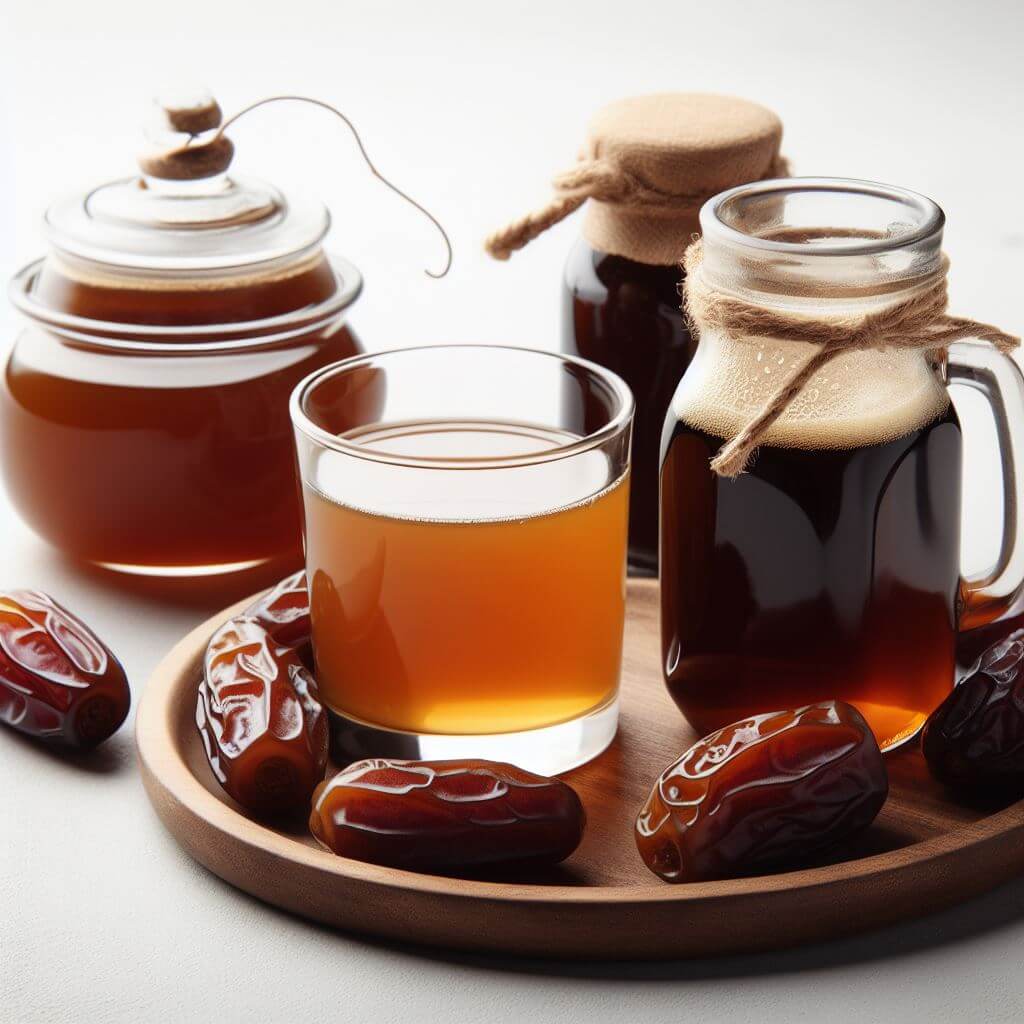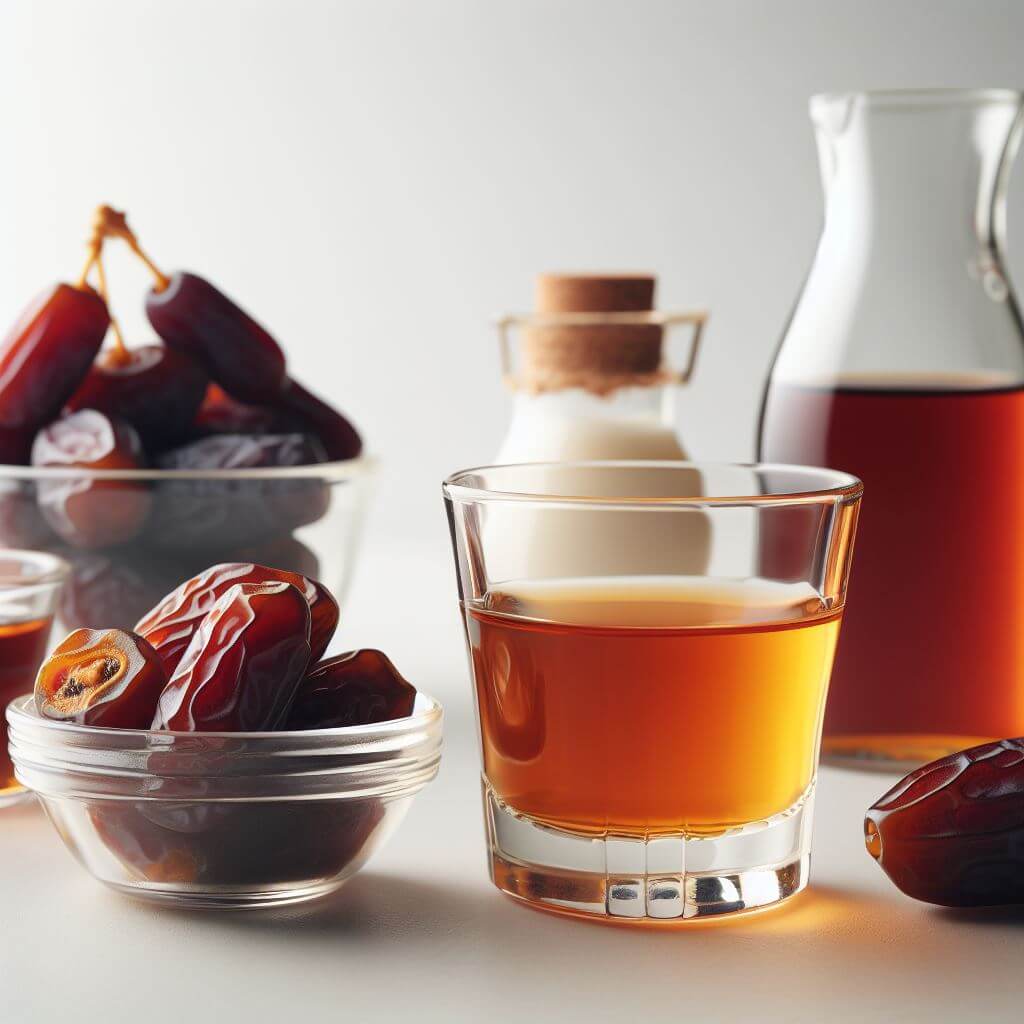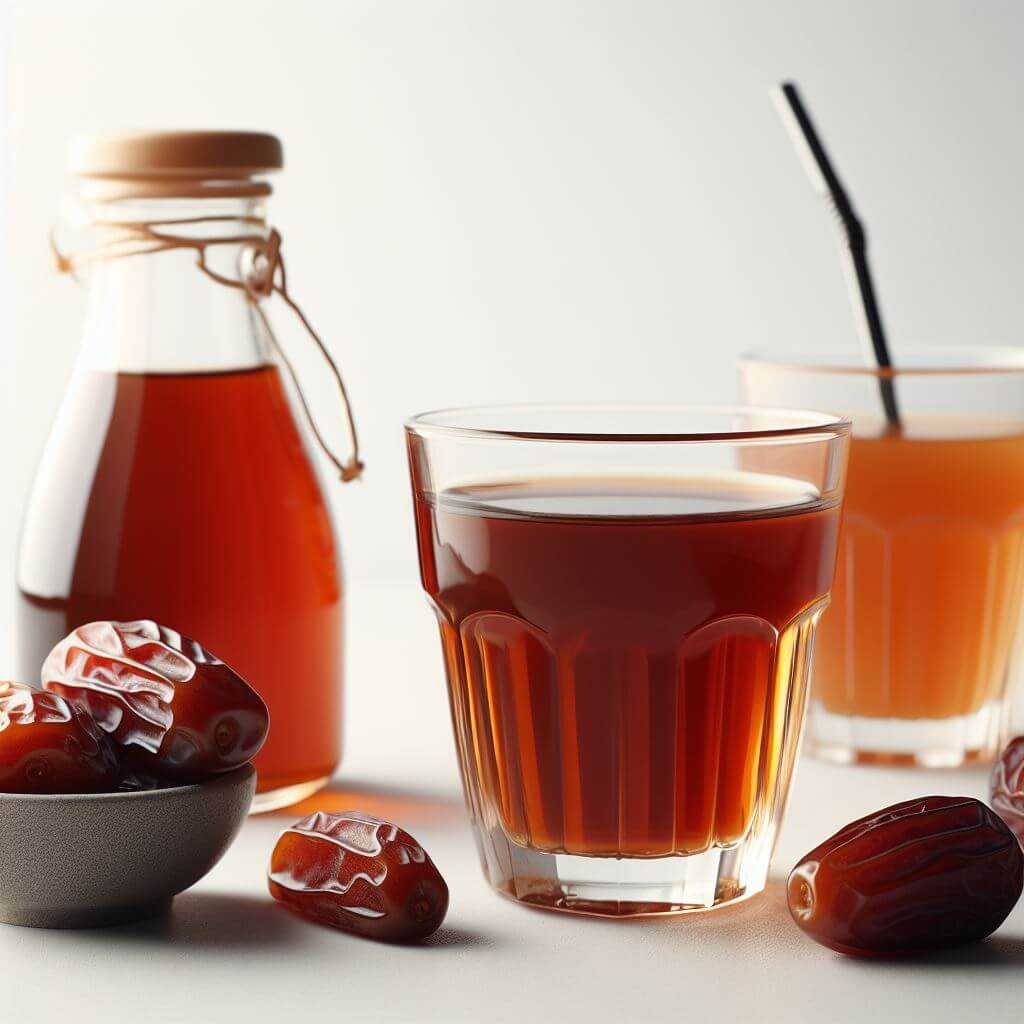Date juice concentrate and date syrup are two popular forms of processed dates used as natural sweeteners. While similar in some ways, key differences exist between these products in terms of processing methods, nutrition, flavor, and best uses.
Date Juice Concentrate vs. Date Syrup: Comparing Advantages and Disadvantages
Overview of Date Juice Concentrate
Date juice concentrate is produced by pressing or blending ripe dates into juice, then evaporating water content to concentrate the natural sugars into thick syrup. Up to 70-80% of the water can be removed, leaving a viscous, sticky concentrate that is intensely sweet.
This minimal processing helps retain many of the micronutrients found in fresh dates, like potassium, magnesium, and antioxidant polyphenols. Date concentrate has a pure date flavor, ranging from subtle honey-like tones to richer maple and caramel notes depending on the variety.
Date concentrate can have a shelf life exceeding one year when properly pasteurized and stored. The removed moisture inhibits microbial growth. Refrigeration after opening preserves quality.
Advantages of Date Concentrate:
- Made from 100% pressed dates
- Long unrefrigerated shelf life
- Higher nutrition than syrup
- Pure flavor, no additives
- Concentrated source of antioxidants
- Versatile for cooking and baking
Disadvantages of Date juice Concentrate:
- Requires careful evaporation process
- Higher natural sugar content per serving
- Expensive compared to syrup
- Limited hydration properties

Date Juice Concentrate vs. Date Syrup
Overview of Date Syrup
Date syrup differs from concentrate in that it relies on extracting sugars from dates using hot water. Chopped dates are boiled in water for hours until softened, then strained to remove solids. The resulting syrup is less thick than concentrate.
Date syrup has a subtle flavor with hints of caramel. Some products have other natural or artificial flavorings added. Since syrup is diluted with water, it is lower in micronutrients than concentrate, but may be easier for some to digest.
Syrup is shelf stable due to the high sugar environment hostile to microbes. When unopened, it can be stored at room temperature for up to a year. Refrigeration extends quality once opened.
Advantages of Date Syrup:
- Made from dates and water
- Lower natural sugar content
- Less viscosity than concentrate
- Inexpensive and commercially abundant
- Works well in beverages
Disadvantages of Date Syrup:
- Significant added water dilution
- More processed than concentrate
- Lower nutritional value
- Added flavors may be present
- Shorter shelf life after opening
Nutrition Comparison
Since concentrate undergoes less processing and dilution, it retains higher levels of potassium, magnesium, calcium, phosphorus, iron, and copper compared to syrup. Concentrate also provides more phenolic antioxidants, vitamins A, B, and C, amino acids, and other beneficial phytonutrients from the whole dates.

Date Juice Concentrate vs. Date Syrup
Flavor Profile Differences
Date concentrate derived entirely from pressed dates has a pure, intense flavor reminiscent of fresh dates. It ranges from floral, honey-like tones to maple, butterscotch, or molasses notes depending on variety. Date syrup has a less pronounced flavor due to water dilution, sometimes with flavorings added.
Viscosity and Texture
Date concentrate has a thick, sticky syrup consistency that clings to surfaces. The viscosity comes from the fiber and sugars in dates. Date syrup has a thinner, more pourable texture since it is cut with water. This makes syrup easier to blend into some foods and beverages.
Application Versatility
The rich flavor and viscosity of date concentrate makes it excellent for recipes like smoothies, baked goods, marinades, and dressings. The thinner syrup works well blended into drinks, yogurt, oatmeal or drizzled over desserts, but can sometimes be overpowered by other ingredients.

Date Juice Concentrate vs. Date Syrup
Cost Comparison
Date syrup is generally cheaper to purchase than date concentrate. Syrup production has higher yields from the added water. Consumers pay for the convenience of syrup being more diluted and liquid. Concentrates have lower moisture so more dates are needed per ounce, along with added processing.
In summary, both date concentrate and syrup have their advantages. Concentrate offers superior nutrition, a robust date flavor, and versatility for cooking. Syrup provides an inexpensive, easy-to-use sweetener, though with more dilution and less pronounced taste. Determining the priorities for your needs and uses can help decide which option may be the better choice.
